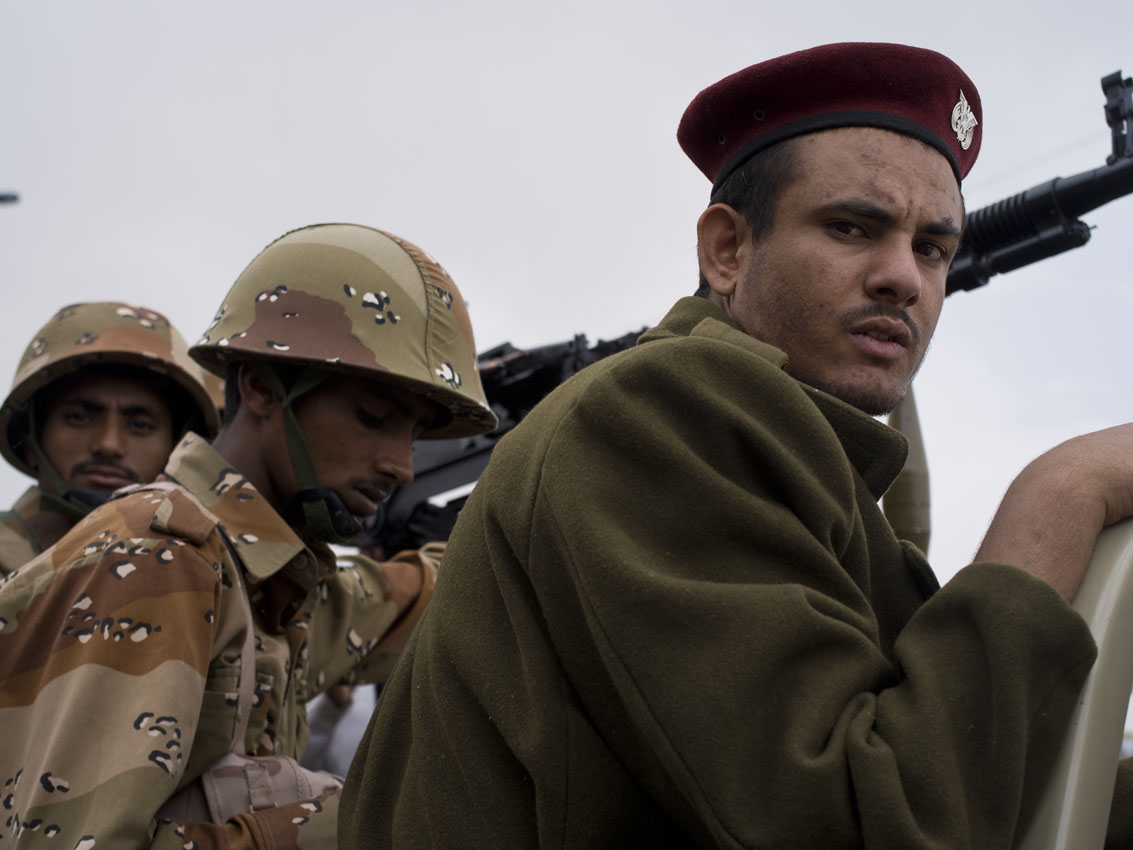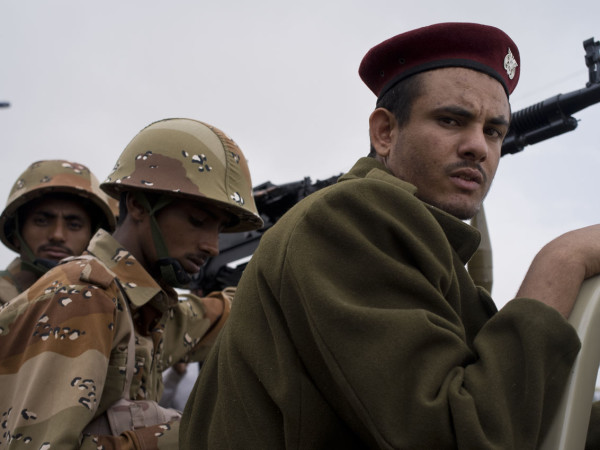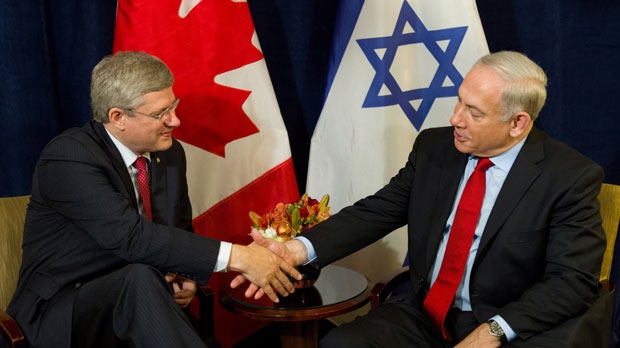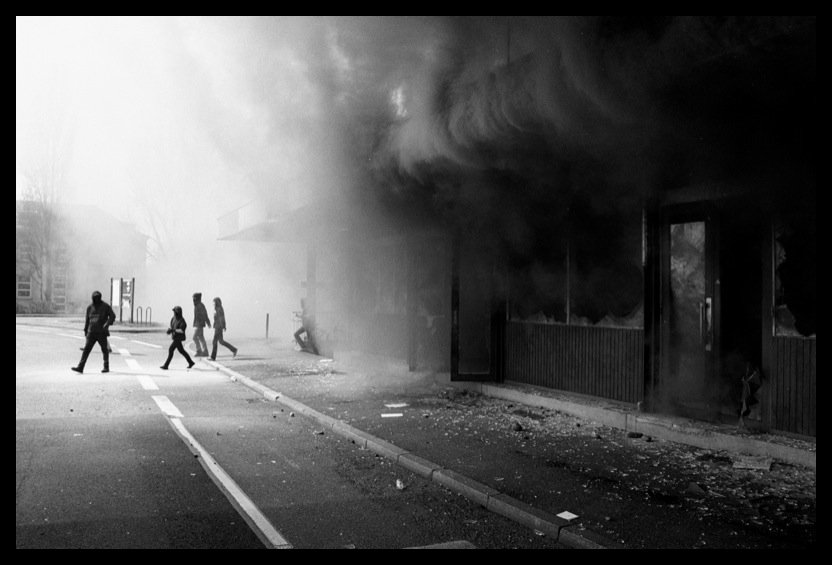Fighting continues to surge in Yemen’s civil war between the Iran allied Shia Houthis, who have taken control of the country, and the southern supporters of Yemen’s former President Hadi. The Houthi rebels from the north overran the capital of Sana’a last year, quickly expanding their control and ousting President Hadi, whose government they say is corrupt. A military coalition seeking to “defend the legitimate government of Yemen” was then formed and led by Saudi Arabia, where Hadi is currently in exile, and includes Kuwait, Qatar, Bahrain, Jordan, Egypt, Morocco, Senegal, Sudan, and Malaysia. The coalition is also receiving non military support from the U.S., U.K., France, Belgium and Turkey. The mainly Sunni Gulf Arab countries have been waging an air campaign against the Houthis since March, in turn devastating the civilian population and creating a chaotic environment in which terrorist groups are now thriving.
After four months of setbacks the momentum has shifted as hundreds of Yemeni fighters, secretly trained in Saudi Arabia, arrived and have seized the offensive, taking control of a major city and pressing to expand. On July 25th, Saudi Arabia announced there would be a five day humanitarian ceasefire, but that it reserved the right to respond to “military activity or movement” by Houthi rebels. The first day of the ceasefire witnessed more than a dozen Saudi airstrikes and Houthi clashes on numerous fronts. Both sides claim the attacks came in retaliation and accuse each other of being the first to violate the ceasefire.
According to the United Nations, at least 3,000 people have been killed in Yemen since the conflict began and an estimated 21 million are in need of immediate humanitarian aid. Secretary General Ban Ki-moon urged the parties to “agree to and maintain the humanitarian pause for the sake of all the Yemeni people” and asked them to act in good faith throughout the pause. Prior to the crisis, Yemen imported 90% of its food, and with the blockade preventing many goods from entering, the prices of staple foods, fuel and medicine are rising sharply, along with increasingly limited availability.
Yemen is in desperate need of international aid funding and when the U.N. made a plea for a flash fund in April, Saudi Arabia pledged the entire $274 million, none of which has been delivered. The biggest constraint on aid has been the Saudi coalition’s blockade of Yemen’s airports, borders and shipping which critics believe is an example of siege warfare against civilian populations that is forbidden under international law. The Houthis have also attacked ships bringing aid and across Yemen, while errant Gulf warplanes have bombed friend and foe alike, reducing much of the ancient capital to dust.
The conflict is often cast in sectarian tones, with the Houthis portrayed as a Shiite militia in a larger proxy war between Iran and Saudi Arabia that has expanded to Iraq and Syria. The Saudis have publicly stated three motives; to return Hadi to Yemen as president, to crush the Houthi movement and to curb Iranian influence in the country.
Though the Iranians are backing the Houthis, the movement denies any direct military support and many analysts have expressed skepticism over U.S. and Saudi claims, believing that “the Houthis, unlike Hezbollah and other Shia movements, do not take directions from Tehran, and have received small amounts of aid”. The Houthis are Zaidi, a different Shi’ite sect than Iran’s, and are not in need of massive arms supplies as they have been able to raid government stocks and have received supplies from forces loyal to former president Ali Abdullah Saleh.
Saudi Arabia’s proxy war with Iran and strategic interest in Yemen has more to do with the economics of oil and geopolitical alignments than Iran’s potential nuclear program. Saudi Arabia remains the United States’ closest Arab ally, yet it strongly opposed the U.S.-Iran deal as Iranian oil is expected to drive down prices in an already oversupplied market. When the Houthis first took power in Yemen, they proposed a progressive agenda not in line with the Saudi government’s strategy throughout the “Arab Spring” of preventing democracy from breaking out across the region which could threaten the Saudi monarchy. Yet America, Britain and France continue to provide weapons and intelligence to the coalition in the hope of pacifying its opposition to their Iran deal.
In a familiar tale region wide, chaos and disorder have allowed radical terrorist groups to thrive and fill the ungoverned spaces, in Yemen it has been Al Qaeda in the Arabian Peninsula (AQAP). The same Al-Qaeda branch that claimed responsibility for the “underwear bomber” and the Charlie Hebdo Paris attacks has expanded and gained control of Yemen’s fifth largest city, Mukkalla, and surrounding strategic areas. The Houthis believe they are the only party that is committed to battling Al Qaeda, as the former Saleh regime and the Saudis have had ambiguous relationships with Sunni jihadists, seeking to use them for their own ends.
Residents claim the extremists are participating in the assaults by the Saudi-led coalition, and while the coalition has denied any AQAP involvement in the offensive, it is not known to have attacked the militants either. As the conflict surges, the AQAP now faces competition from groups declaring allegiance to Islamic State, who have opened training bases nearby and recently claimed responsibility for a car bomb attack in the capital. Yemen’s civil war echoes the crisis in Syria where “what’s happening in Yemen is creating an environment that encourages jihadist groups. They have been dreaming of this day.”





